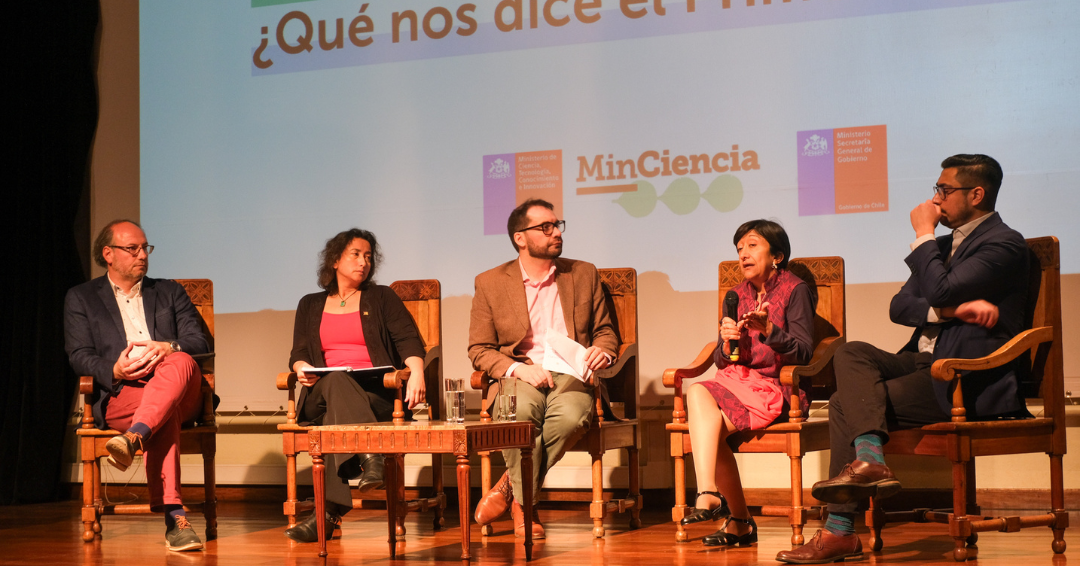Patricia Peña, co-researcher on #RegulaciónConvergente and member of the Commission, participated in the event organized by the Ministry of Science, Technology, Knowledge and Innovation (MinCiencia) and the Ministry General Secretariat of Government (SEGEGOB).
The seminar “Advisory Commission Against Disinformation: What Does the First Report Tell Us?” was held at the America Hall of the National Library with Ministers Camila Vallejo and Aisén Etcheverry. It was an opportunity to discuss the phenomenon of disinformation in the global digital environment and its impact in Chile.
“This first report is a contribution to everyone who wants to understand this phenomenon and its impact on our democracy. It is the result of very responsible and collaborative work by the commissioners, particularly for the purpose of presenting a diagnosis on how disinformation is occurring in the world in general and in Latin America specifically, with a focus on Chile, of course. The report systematizes the approach of international agencies, literature and recent studies on how disinformation is currently taking place in the context of digital media and platforms. It also provides an overview of what needs to be addressed regarding the different types and modalities of disinformation. An important point highlighted by the report is to stop talking about fake news as a synonym for disinformation, as they are actually a specific type of disinformation and we need to understand the other ways in which this happens, especially in a present and future that will be marked by generative artificial intelligence,” emphasized Peña.
In the same vein, Minister Vallejo noted in the seminar: “I think what has been done here is very valuable, and with Minister Etcheverry and the government as a whole, we look forward to the second and final report with recommendations, as there are already several bills in Congress. This work will be very useful to us. This well-studied and well-prepared input addresses the complexity of the issue, precisely in order to have a legislative debate with the Executive that is as responsible as possible.”
In turn, Minister Etcheverry commended the debate’s spirit based on respect and a will to converse maintained by the commissioners in their work, emphasizing that “this is something that we really need to learn as a society these days.”
The minister of science added that “disinformation distorts the truth and undermines trust in our institutions and media. It influences the political decisions that shape our future and, in the most serious cases, it may lead to decisions that threaten the life and communities we love.”
The seminar, moderated by the communicator Nicolás Copano and the academic at the Journalism Department of Universidad Alberto Hurtado Amaranta Alfaro, included the participation of researcher Patricia Peña, who is also director of Fundación Datos Protegidos; Juan Carlos Lara, executive director of the NGO Derechos Digitales; Claudio Elórtegui, director of the PUCV School of Journalism; María José Escobar, academic at the Department of Electronics of UTFSM; Pedro Anguita, academic at Universidad de Los Andes; Ingrid Bachman, academic at Pontificia Universidad Católica de Chile; and Paulina Ibarra, executive director of Fundación Multitudes.
The Advisory Commission Against Disinformation was created for the purpose of guiding both ministries in the assessment of the global phenomenon of disinformation, as well as its expression at a local level in Chile, particularly on digital platforms.
As part of its duties, it committed to issuing two reports, the first in August and the second in November 2023. The first focused on the current status of disinformation and was submitted under the title “The Phenomenon of Disinformation: Review of International and Chilean Experiences”.



